 Has this past year taken it’s toll on you?
Has this past year taken it’s toll on you?
Depression can manifest itself in many ways in different people. But if you don’t feel like yourself, are down all the time and have lost your zest for life in this recent year of our “New Normal” first let us say, you are not alone despite being socially distanced.
Depression is felt in your heart center. The question becomes, can it actually be doing physical damage to the heart itself?
Recent research has shown that heart disease can cause depression and that depression can cause heart disease.
A few statistics to mull over.
- Heart disease remains the leading cause of death in the United States.
- 1 in 3 Americans are predicted to die with heart disease as the cause.
- Depression is the leading cause of disability throughout not just the USA but the world.
- 1 in 20 adults in the USA experience depression yearly and this past year that number increased greatly.
- 1 in 3 heart attack survivors experiences major depression each year.
- People with a history of depression are 4 times more likely to experience a heart attack within 14 years than those who have no history of depression.
- Heart disease patients with depression are 4 times more likely to die within 6 months than those without depression.
The link between heart disease and depression is complex.
Have you ever heard the phrase “stress kills”? While this statement may seem a little overly dramatic, it does have a basis in medical facts. When a person is stressed out, the stress hormones cortisol and adrenaline are released and the sympathetic nervous system is activated, oftentimes referred to as a person’s “fight or flight” response. When a person is depressed, it often results in a chronically elevated level of these hormones, a situation that can have detrimental effects on the heart over time.
Depression has been known to occur as a result of heart disease. In one recent study, nearly half of all patients examined a week following a major heart disease surgery showed beginning signs of clinical depression. But why is this? While the relationship between heart disease and depression is still under study, one possible answer is that patients who have recently undergone major heart surgery tend to feel slow and sluggish, finding it difficult to get back into their regular routines. If their regular routines have been threatened by heart disease or they must change their lifestyles drastically in order to adjust to new health concerns, they will understandably start to feel a sense of discouragement and hopelessness.
Heart disease patients dealing with depression often don’t receive the correct medical treatment in order to address both issues simultaneously. This can in part be due to the actions of the patient directly, as depression can make it difficult for people to remember to take care of themselves, and patients may forget to take their medications or simply not feel the motivation to do so.
They may also lack the motivation and energy to even simply keep their follow-up appointments. Furthermore, many cardiologists and primary care doctors simply don’t have the experience with or exposure to patients with mental illness the way psychiatrists and psychologists do and may not be able to properly recognize when a patient is experiencing depression. For this reason, heart disease patients with depression often get overlooked for their depression and aren’t effectively treated for it the way a patient seeking treatment for mental illness specifically would.
While there are still a lot of unknowns regarding the relationship between depression and heart disease, both conditions can be effectively treated with proper recognition and monitoring. For compassionate cardiologists who care about the overall health of their patients and not just medical issues addressed by them specifically, contact the Tampa Cardiovascular Associates by calling (813) 975-2800 today. www.tampacardio.com.
Our physicians are always here for you. We are always happy to address any concerns you have related to your heart health or to refer you to a qualified mental health specialist.


 Studies reveal that optimistic, happy, glass half full people are more likely to have good heart health as well.
Studies reveal that optimistic, happy, glass half full people are more likely to have good heart health as well.
 Dry vs. Wet Saunas – Are they good for you and can they help your heart?
Dry vs. Wet Saunas – Are they good for you and can they help your heart?
 If you’ve ever experienced depression you understand that it can sometimes feel like you have a broken or heavy heart.
If you’ve ever experienced depression you understand that it can sometimes feel like you have a broken or heavy heart. 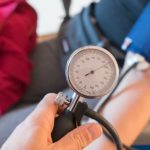
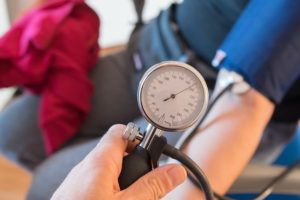 Essential hypertension is the blanket term used when no root cause is found for high blood pressure. As many as 95% of all high blood pressure falls into this category.
Essential hypertension is the blanket term used when no root cause is found for high blood pressure. As many as 95% of all high blood pressure falls into this category.
 Ready to take the leap and commit to heart health? It isn’t as challenging as you think. Just follow these tips for ultimate heart health!
Ready to take the leap and commit to heart health? It isn’t as challenging as you think. Just follow these tips for ultimate heart health!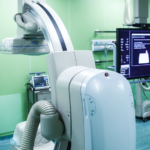

 Sugar hits the pleasure center of the brain in the same way that hard drugs do. This makes refined sugar extremely addictive and very hazardous to your health. Moderation is key and elimination even better.
Sugar hits the pleasure center of the brain in the same way that hard drugs do. This makes refined sugar extremely addictive and very hazardous to your health. Moderation is key and elimination even better.
 The temperatures are dropping fast. With the sudden change in weather, our bodies sometimes don’t fully adjust right away. This can put a dent in our immunity and leave us exposed to potential cold and flu viruses going around.
The temperatures are dropping fast. With the sudden change in weather, our bodies sometimes don’t fully adjust right away. This can put a dent in our immunity and leave us exposed to potential cold and flu viruses going around.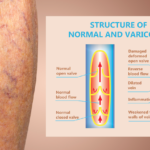
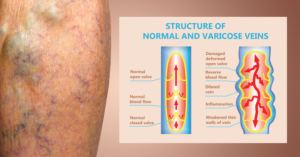 Our circulatory system is an amazing mechanism. Veins run throughout our entire body. They feed blood to every organ and cellular tissue. When veins sustain damage from trauma or vein disease – venous insufficiency they begin stages of venous insufficiency.
Our circulatory system is an amazing mechanism. Veins run throughout our entire body. They feed blood to every organ and cellular tissue. When veins sustain damage from trauma or vein disease – venous insufficiency they begin stages of venous insufficiency.